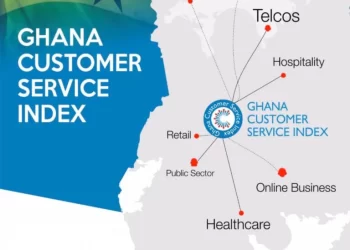The cedi weakened slightly against major foreign currencies last week, marking a rare pause in its robust performance this year.
Despite the modest depreciation, the cedi’s year-to-date gains remain among the strongest globally, reflecting a buoyant sentiment driven by stable macroeconomic indicators and strong foreign inflows.
The local currency dipped 0.19% against the US dollar to close the week at GH₵10.45.
However, it has appreciated by 40.67% since January—an exceptional performance underpinned by IMF disbursements, cocoa syndicated loan inflows, and a rebound in investor confidence.
Against the British pound, the cedi edged down by 0.06% to GH₵14.0245, and fell 0.84% to GH₵12.2501 versus the euro. Mid-market rates at the close of the week also reflected further pressure, with the dollar trading at GH₵10.55, the pound at GH₵14.39, and the euro at GH₵12.44.
Analysts, however, view the latest depreciation as a healthy correction following the cedi’s rapid appreciation over the past months.
Treasury auction oversubscribed by 265%
In a powerful show of investor confidence, demand for government short-term securities surged last week, with bids totaling GH₵28.1 billion—far exceeding the GH₵7.7 billion target. This represents an oversubscription rate of 264.84%, sharply higher than the previous week’s GH₵21 billion in bids.
Breakdowns from the auction indicate that 37.80% of bids for the 91-day bill, 65.64% of the 182-day bill, and 73.36% of the 364-day bill were accepted.
Despite the heavy demand, yields on all tenors declined, suggesting strong investor appetite even at reduced returns.
The 91-day bill yield fell sharply by 289 basis points to 10.84%, while the 182-day and 364-day tenors declined to 13.23% and 14.31%, respectively.
Bond market eases slightly
Meanwhile, activity on the secondary bond market cooled marginally, with trading volumes slipping 4.6% to GH₵4.2 billion. Yet, government bonds continued to dominate, accounting for 57.90% of total trades, while Treasury bills made up 35.75%.
Corporate bonds and sell-buy-back transactions contributed 4.80% and 1.54%, respectively, according to data from the Ghana Fixed Income Market (GFIM).
Market analysts attribute the continued dominance of GoG bonds to lingering effects of the domestic debt exchange and a heightened preference for liquid and secure assets amid a cautiously optimistic economic climate.
GSE Composite Index rises 4.48%
The Ghana Stock Exchange maintained its bullish momentum last week, with the GSE Composite Index climbing 4.48% to close at 6,673.11 points.
This brings the benchmark index’s year-to-date gain to a stellar 36.51%.
The rally was led by telecom and consumer goods stocks, particularly MTN Ghana, which surged 9.06% to GH₵3.25, extending its year-to-date return to 30%.
Fan Milk Ltd rose 3.66% to GH₵4.25 (YTD: 14.86%), and Republic Bank Ghana added 3.33% to close at GH₵2.98 (YTD: 40.19%).
Gold-backed exchange-traded fund NewGold (GLD) gained 2.51%, closing at GH₵373.75, narrowing its year-to-date loss to 4.29%. GOIL and Ecobank Ghana also posted modest gains of 1.42% and 0.46%, respectively.
However, the upbeat sentiment was somewhat dampened by losses in Cal Bank, which dropped 3.64% to GH₵0.53, and Societe Generale Ghana, which shed 4.37% to GH₵1.97.
Market activity surged significantly, with total share volumes rising 264.37%—from 9.75 million to over 35.5 million shares. The value of traded equities hit approximately GH₵140 million, marking one of the most active trading weeks in recent memory.
Sector analysts say financial and ICT stocks are poised to lead gains in the coming weeks, supported by improving earnings expectations and a positive macroeconomic backdrop.
Cautious optimism ahead
The combination of marginal cedi adjustments, record-breaking investor demand for government securities, and surging equity market activity paints a cautiously optimistic picture for Ghana’s economic outlook.
While near-term challenges such as inflation, global interest rate shifts, and fiscal pressures remain, the current momentum across forex, bonds, and equities suggests growing investor confidence in Ghana’s economic recovery story.














